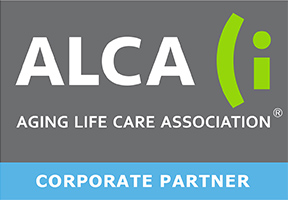Staying Engaged and Preventing Illness
The Penn Memory Center at the University of Pennsylvania states that some changes to cognition and memory are normal parts of aging. However, a healthy lifestyle can not only maintain but can even improve brain health.
So what are the best ways to promote brain health and preserve cognition? Are some approaches more effective than others? The latest research on brain health has discovered some potential answers.
Recent Research Points to Exercise
Physical activity is now being cited as the single most important factor in preventing cognitive decline. A 2022 study by the University of California found that exercise enhances the neural connections in the brain via beneficial proteins. This results in improved communication between synapses, or gaps between neurons.
The Neuroprotective Benefits of Exercise
The CDC notes that physical activity improves problem-solving ability and enhances memory. Exercising regularly also strengthens high-level thinking skills called executive and global functioning. This can significantly reduce the risk of cognitive decline.
Caring for Overall Health and Wellness
- Get enough sleep: Boston University Researchers found that brain and spinal cord fluid cleanse metabolic waste while sleeping. The Scientific American calls this a “deep sleep deep clean.”
- Monitor blood vessel health: Regularly check blood pressure, cholesterol, and blood sugar levels. According to Penn researchers, what’s good for the heart is good for the brain.
- Eat a Mediterranean-type diet: Boost nutrition with rich in plant-based foods, fish and whole grains, and healthy fats.
- Reduce stress: Harvard Health notes that stress management is integral to brain health since chronic stress can change brain structure.
- Limit dangerous substances: Avoid excessive alcohol consumption and tobacco usage to maintain brain health and avoid long term risks.
Staying Mentally Active
A variety of mentally challenging activities and hobbies can help us stay sharp by “exercising” the brain while passing time. Examples include reading books, doing puzzles, playing cards or chess, playing an instrument, attending cultural events, and visiting museums.
The Importance of Social Engagement
Staying socially active is essential to our wellbeing, particularly as we age. Living in an active-living retirement community provides opportunities for this mental stimulation. Social engagement can help ward off both physical and mental ailments, while having fun!
References
-
- “Healthy Brain Aging.” Penn Memory Center, University of Pennsylvania, 2021, pennmemorycenter.org/education-and-support-resources/healthy-brain-aging/.
-
- “Exercise Alters Brain Chemistry to Protect Aging Synapses.” University of California, San Francisco, 2022, www.ucsf.edu/news/2022/1/422086/exercise-alters-brain-chemistry-to-protect-aging-synapses.
-
- “The Healthy Brain Initiative: The Public Health Road Map for State and National Partnerships, 2013-2018.” Centers for Disease Control and Prevention, 2013, www.cdc.gov/aging/pdf/thehealthybraininitiative.pdf.
-
- “Physical Activity Can Help You Maintain a Healthy Brain.” Centers for Disease Control and Prevention, www.cdc.gov/nccdphp/dnpao/features/physical-activity-brain-health/index.html.
-
- “Deep Sleep Gives Your Brain a Deep Clean.” Scientific American, 2021, www.scientificamerican.com/article/deep-sleep-gives-your-brain-a-deep-clean1/.
-
- “Understanding Sleep and the Future of Sleep Disorder Treatments.” Boston University, 2022, www.bu.edu/articles/2022/understanding-sleep-future-sleep-disorder-treatments/.
The information provided in the article is for general informational purposes only. This information is not a substitute for medical advice. Accordingly, before taking any actions based upon such information, you are encouraged to consult with the appropriate professionals.
- “Understanding Sleep and the Future of Sleep Disorder Treatments.” Boston University, 2022, www.bu.edu/articles/2022/understanding-sleep-future-sleep-disorder-treatments/.






